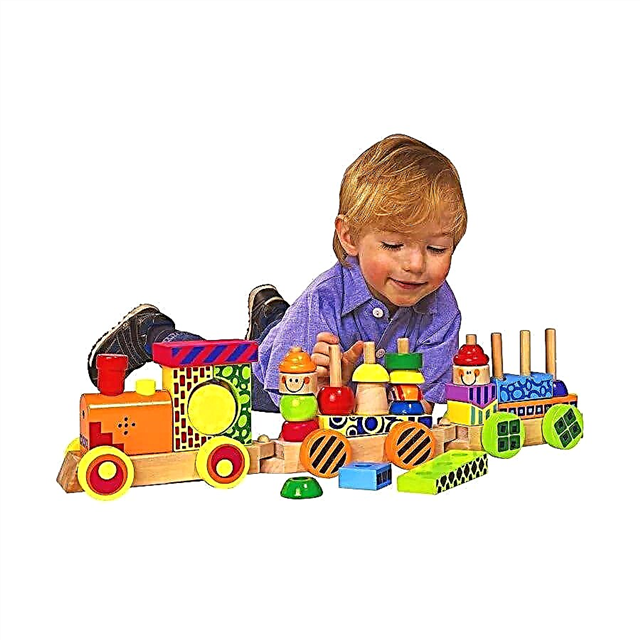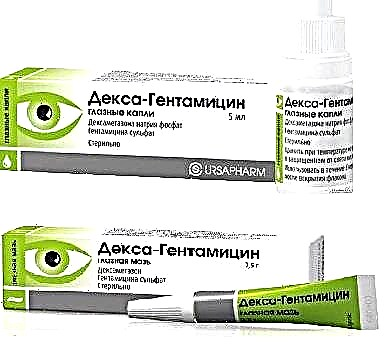For most parents, vomiting in a child without a fever is an inexplicable phenomenon. Perhaps this symptomatology is not a sign of any serious disorders in the body, but it is quite obvious that it cannot be ignored. Only a qualified specialist can make an accurate diagnosis and prescribe an effective therapy. Before going to the clinic, you need to understand the medical terminology - many young parents often confuse profuse regurgitation of infants with symptomatic and regular vomiting.

If the child vomits without fever and diarrhea, it should be shown to the doctor
Important! Alimentary inflammation of the stomach in children often occurs against a background of banal overeating. A single vomiting does not need treatment. However, if it is accompanied by signs of intoxication, then the baby's life is in great danger.
The absence of hyperthermia in an infant against the background of nausea and vomiting should not lull the vigilance of young mothers and fathers. Vomiting in itself is not a disease, only a sign of some pathology. The etiology of this condition can be associated with various reasons.
Causes of vomiting in infants
Doctors identify a number of reasons why a child may vomit without fever:
- Pyloric stenosis is a congenital anomaly in the development of the pylorus. In infants, it manifests itself even during the neonatal period, namely at the age of 2-4 weeks. Its main symptom is vomiting, which is also described as "fountain" vomiting. The content of vomit is curdled milk, there is no admixture of bile in them. The smell of vomit is sour, with an acidic reaction.
- Pylorospasm. In young children, pylorospasm is manifested by persistent regurgitation of more than 2 tablespoons, even 1-2 hours after feeding, poor weight gain, bouts of colic, insomnia. Women are more susceptible to this pathology. With spasm of the gatekeeper, children are restless, but diarrhea is extremely rare.
- Gastroesophageal reflux. The main symptom of the disease is frequent regurgitation. With reflux, anxiety, weakness, hypersalivation, hiccups, morning cough, and sometimes sudden attacks of suffocation are also observed.
- Cardiospasm. With this pathology, when food enters the esophagus, it expands, and the lower esophageal sphincter remains narrowed. In this regard, vomiting occurs. Sometimes cardiospasm is accompanied by pain in the region of the heart.
- Intestinal intussusception. It is observed in 80% of infants. Most often diagnosed at the age of 5-7 months. This anomaly is more often recorded in boys. Bile impurities are present in the vomit. Children often cry, pull their legs to the tummy. In addition, there is anemicity of the skin and mucous membranes. One-year-old children can completely refuse to eat.
- Acute gastroduodenitis. With the disease, severe headaches and abdominal pains, insomnia, nausea and vomiting are observed. Basal temperature, as a rule, remains within the physiological norm.
- Gastritis of alimentary origin. Inflammation of the stomach is accompanied by nausea, severe pain, vomiting and dryness in the mouth, hypersalivation, belching and hiccups appear. The child often vomits without fever precisely with alimentary gastritis. This condition is often diagnosed in children with improper nutrition, that is, they eat a lot of spicy, fried or fatty foods.
- Pancreatitis is the most common disease of the pancreatic gland in childhood. Against the background of this pathology, vomiting without diarrhea and an increase in temperature can be observed. Children complain of lack of appetite and abdominal pain. Bile impurities can be found in the vomit.
- Cholecystitis. The presented pathology can also cause vomiting in a child without diarrhea. With an exacerbation of the disease, the body temperature sometimes rises to 38-39 ° C. The etiology of cholecystitis can be associated with infections as well as invasions.
- Food intoxication. Vomiting with food poisoning in children under one year old is a fairly frequent occurrence, while hyperthermia, as a rule, is not observed.
- Acetonemic crisis is characterized by a violation of metabolic reactions in the body. The symptomatology of the disease is manifested as a result of an increase in the number of ketone bodies (acetone, β-hydroxybutyric acid) in the baby's body. Vomiting during a crisis is indomitable and repeated. Against the background of vomiting, there are also signs of dehydration and intoxication.

Regurgitation in infants is a physiological process
Note. If the baby refuses to eat in the morning, complains of headache and nausea, then this may indicate increased intracranial pressure. With such a problem, it is worth contacting a neurologist. He will tell you how to treat this pathology.
Algorithm of actions of parents
When vomiting is detected in a child, parents should not ignore this phenomenon. If the etiology of vomiting could not be independently determined, the child must be shown to the doctor without fail. The parents themselves should do the following:
- Provide bed rest for the baby. During this period, it is extremely important to monitor the position of the baby's head, it must constantly be on a hill. Thus, it is possible to prevent the entry of vomit into the child's airways.
- No need to overfeed the baby. If he vomits during feeding, the baby should be held upright for several minutes. Doing this will help prevent further urge to vomit.
- After the end of vomiting, the baby's mouth must be cleaned of all food debris.
- To prevent dehydration, your child needs to be given plenty of water. Also in this case, rehydration drugs help well.

When vomiting is necessary to establish the etiology of the disease
Council. Before the arrival of specialists, you should not give your child antiemetics, as they have certain contraindications. In this case, you can only harm the baby's health.
When to see a doctor
Vomiting is one of the signs that serious problems are developing in the body. If the child has vomited once, there is no direct need to contact a pediatrician. In all other cases, it is better to show the baby to the doctor, he will answer the parents to the question "Why does vomiting occur?"

To establish a diagnosis, the doctor must examine the child.
What to give in case of vomiting without fever
Before using medications to eliminate vomiting, you need to establish the etiology of this condition. This will require a doctor's consultation.
The most popular medicines for vomiting are sorbents. They adsorb toxic substances on their surface, therefore they are most often used for poisoning and intestinal infections. These medicines can be used to treat children of all ages.
To eliminate vomiting, the following medicines are usually used:
- Activated carbon;
- Dramina;
- Smecta;
- Cerucal;
- White coal;
- Zofran;
- Motilium;
- Metoclopramide;
- Enterosgel;
- Polyphepan;
- Polysorb;
- Riabal;
- Atoxil;
- Filtrum;
- Bromopride;
- Enterodesis.
Note. There is a wide variety of antiemetics on the pharmaceutical market. Each of them has its own contraindications, therefore, in order not to harm the child, you should not self-medicate, it is better to trust the pediatrician.

After vomiting, the baby does not need to be force-fed
Complications
In the provision of untimely medical care for vomiting in a child, the following complications may occur:
- bleeding;
- weight loss;
- convulsions;
- dehydration;
- violation of water-salt metabolism;
- loss of consciousness;
- when vomit enters the respiratory system, suffocation occurs.
Council. If a child is sick without fever, one should not exclude malfunctions in the work of metabolic processes, as well as psychogenic factors.
Prohibited activities for vomiting
Every parent should know what not to do if a child is vomiting:
- give antibiotics prior to diagnosis;
- flush the stomach if the baby is unconscious;
- use antispasmodics, analgesics or antiemetic drugs without a doctor's prescription;
- give drinks and food (soda, chicken broth, milk, juice, tea), which further increases dehydration;
- postpone a visit to the doctor.
A single manifestation of nausea most often does not pose any threat to health, it is only a natural reaction to environmental factors. However, if additional symptoms appear, you should immediately seek medical help without self-medication.



